Welcome to Part Sixteen of The Beginner’s Guide to Freediving, the best place to start your freediving journey. If you’re planning to start freediving, this chapter explores the risks associated with freediving and important considerations for your risk assessment and dive plan.
Dealing with Risks Associated with Freediving
Having discussed the risks of black outs and hypoxic fits, this article will cover other risks associated with freediving. They can be divided into risks associated with your body, your diving environment, Scuba diving, water pressure and your buddy. We will look at each in turn and then consider how to create a risk assessment and dive plan.
Risks associated with freediving – Personal Risks
Personal risks associated with freediving include dehydration, eating too little (or too much) or the wrong foods prior to a dive, smoking, recreational drugs, exercise, tiredness, stress, personal hygiene and the use of medication. An awareness of how all of these can affect your freediving can help ensure your dive sessions are as safe and enjoyable as possible.
- Risks associated with freediving – Dehydration – Freedivers can easily become dehydrated through a combination of three factors: Immersion diuresis, sweating in a wetsuit and breathing out through the mouth. Immersion diuresis, part of the mammalian dive reflex, causes you to excrete more fluids in the form of urine than you are usually taking in orally. Our exhalations also include water vapor and constant breathing in and out through the mouth can cause a lot of water to be lost from the body. And if you are warm in your wetsuit then you can also lose fluids through perspiration. The result of these three factors means that a freediver can easily become dehydrated. Because of the increased urination, many freedivers feel that they must be well hydrated, though this is often not the case and I have witnessed countless divers exiting the water after a long session with headaches and bad breath caused by dehydration. A 1% decrease in hydration can cause a 10% decrease in performance. Dehydration also causes the blood to become thicker, making the heart work harder to pump blood around the body which uses up more oxygen, and dulls mental processes. It is important to be well hydrated prior to a dive, keep drinking small amounts during the dive and then make sure afterwards you keep drinking fluids. Sports drinks can be useful and it is easy to make you own by adding some salt to some diluted fruit juice.
- Risks associated with freediving – Food – Every freediver is different and any nutritional advice should be based on what works for you as an individual. There are some basic rules that can ensure your blood sugar levels are stable throughout the dive, though, and you should avoid foods that can raise your heart rate. More detail about nutrition for freediving will be found in a subsequent article about diet. As a general rule, you should finish eating at least 2 hours before you go diving, although if it is a light snack then you can usually eat closer to the dive. When your body is immersed in water, the digestive process slows or stops. If you have food in your stomach then it will just sit there, often causing belching and reflux. You should not dive when you are very hungry, either, as your blood sugar levels will be very low and this can cause impaired cognitive function and increase the chance of a hypoxic episode. It is best to eat foods containing complex carbohydrates, fat or protein, which give a slow release of energy into the blood rather than simple carbohydrates and sugars such as white rice, pasta, bread, sugary snacks and fruit juice, which cause a spike in blood sugar followed by a crash. Other foods to avoid are those containing caffeine as they raise the heart rate, burning more oxygen and can also cause anxiety and irritability.
- Risks associated with freediving – Smoking and alcohol – Smoking produces large amounts of carbon monoxide which bonds to haemoglobin 140 times stronger than oxygen. This means that as a smoker, you are preventing your blood from carrying the optimum amount of oxygen. Smoke also irritates the mucous membranes of the sinuses, causing congestion, and coats the lungs in tar, inhibiting oxygen uptake to the blood. As it is a drug, a long dive session can cause nicotine withdrawal symptoms which are unpleasant for you and those around you. Alcohol impairs cognitive and motor skill function, and dehydrates the body, which can lead to sinus congestion. The after effects of alcohol can last a long time so it is not advised to drink the evening before a dive session.
- Risks associated with freediving – Recreational drugs – Drugs affect the mind and the body, causing a dulling of cognitive function or over excitability. They can also lead to dehydration and should be avoided at all costs. You want yourself and your buddy to be functioning optimally and drugs will always impair your diving in some way.
- Risks associated with freediving – Exercise – Over-training out of the water can lead to compromised performance in the water. You do not need to be super-fit to freedive as relaxation is far more important. I have seen very older, unfit yet relaxed freedivers dive far deeper and for longer than younger, super-fit divers who were very stressed and nervous. A good level of cardiovascular health is preferred for freediving but over-training can be counterproductive, reducing breath holding ability. It is important for each person to find the right level of exercise for them, whether it be a session at the gym, a yoga class, or a walk.
- Risks associated with freediving – Tiredness – If you are tired then your mind and body will not function properly. Freediving produces a lot of free radicals due to cells working anaerobically and this can make you feel incredibly tired after a dive session. Take cat naps if you can and make sure that you sleep as long as possible at night to give your body a chance to rest and heal.
- Risks associated with freediving – Stress – A common thread running through all these articles is the promotion of relaxation over stress to ensure an enjoyable freedive. Stress can be acute and it can be chronic. Learning relaxed, abdominal breathing can be the most important lesson anyone takes from a freediving course and will have positive impacts on all areas of your life. Chronic stress is debilitating to your general health and wellbeing and will affect your freediving until you learn the correct, truly relaxed breathing techniques. Acute stress that can occur before a dive will elevate the heart rate and increase the rate at which you burn oxygen. Again, concentrating on very relaxed breathing will help switch off the sympathetic nervous response of ‘flop, freeze, fight, flight’ and activate the parasympathetic nervous response which lowers the heart rate and promotes relaxation.
- Risks associated with freediving – Personal hygiene – With a long freediving session and the effects of immersion diuresis, most freedivers end up urinating in their wetsuits. If you are wearing a two-piece suit and are in warm water then you can pull the bottom half down to pee, however in very cold water this is far more challenging. If you have sensitive skin then this can easily cause a rash, particularly if using an open cell wetsuit or one lined with fabric, with plenty of holes for bacteria to hide out in. After a dive session, all kit should be thoroughly rinsed and the wetsuit washed and then soaked in an anti-bacterial solution such as Milton, even if you have not urinated in your suit.
- Risks associated with freediving – Medication – If you are on medication then you should always consult your doctor to make sure that there are no contraindications for freediving. Most medications are fine, however some lower blood pressure and have been known to cause temporary loss of consciousness even at shallow depths.
Risks associated with freediving – Environmental Risks
Environmental risks associated with freediving include weather, temperature, tides and currents, topography, litter and the flora and fauna of the aquatic environment.
- Risks associated with freediving – Cold – Your body loses heat 25 times faster in water than in air and so it is easy to get cold when freediving if you do not have a thick enough wetsuit for the conditions or have a prolonged dive session. Even if you are diving in warm water it is possible to get progressive hypothermia if you do not warm your body up sufficiently between dive sessions. You may feel fine after a dive session but your core temperature might have dropped by half a degree. The next day you will find that it takes less time before you begin to feel the cold and your body drops by another half a degree and so on. I have found myself shivering in a 5mm suit in a sheltered shallow bay in Greece at the end of August after two weeks teaching in the water. If you are susceptible to this then it is important to wear lots of layers of warm clothes, have a hot bath and take a day off from the water until you feel that you are sufficiently warm. A thermometer can also be useful although not always entirely accurate.
- Risks associated with freediving – Heat – The sun can be very strong, particularly when it is reflected by the water. If you have pale skin, you will easily burn without adequate protection. Many freedivers from colder climes find that they return from a freediving holiday with brown hands and a ‘panda tan’ on their face from around their wetsuit hood and mask. If you wish to avoid this, wear very thin gloves in the water and make sure you wear waterproof factor 50 sun block on the areas of your face that are exposed.The sun can also cause heat exhaustion and sunstroke, and dehydration, caffeine, alcohol, sunburn and medication can compound these problems. Heat exhaustion symptoms can include dizziness, fainting, fatigue, headache, muscle cramps, nausea, pale skin, confusion, sweating and a rapid heartbeat. If you or your buddy exhibit any of these signs and you suspect heat exhaustion, get out of the heat and rest in a cool room. Remove your wetsuit, take a cool shower or bath and drink plenty of fluids. If you do not recover within half an hour, seek medical attention as it could lead to heatstroke.Heatstroke (also known as sunstroke) is extremely serious and can kill or cause brain and organ damage. Often in combination with dehydration, heatstroke leads to the core temperature reaching more than 41 degrees as the body’s temperature control system fails. Symptoms include a throbbing headache, nausea and vomiting, rapid heartbeat and rapid shallow breathing, muscle cramps, seizures, confusion, disorientation, cessation of sweating, loss of consciousness and coma. Risk factors include age, health conditions, sunburn, alcohol and medications including anti-histamines. If you suspect heatstroke, call the emergency services immediately. Bring the person into a cool place and try to cool them down by fanning them whilst wetting their body with water, immersing them in a cool bath or ice bath, or applying ice packs to their armpits, groin, neck and back.
- Risks associated with freediving – Weather – You can begin a dive with clear blue skies and end it in a squall. Weather can be very changeable and you need to have checked the forecast and be prepared for changeable conditions when you plan your dive.
- Risks associated with freediving – Tides and currents – If you freedive where tides and currents are a factor then you need to be aware of tide times so you can plan your dive safely. Ask for local advice, as there may be rip tides coming off a beach or other specific local conditions that you would not know about through tide tables. If you find yourself in a rip tide or strong current then do not attempt to swim against it, swim at an angle to it.
- Risks associated with freediving – Topography – When planning a dive, you need to know what your entry and exit points are and how they may be affected by tides. You may have to get in and out of the water from rocks which could be slippery or rough and rip your delicate suit. Also be aware of what may be under the water, especially if the visibility is compromised. You don’t want to dive in to find it is only a meter deep.
- Risks associated with freediving – Litter – As a freediver, you should always carry a knife or line cutter in case of entanglement in fishing nets and line. You will not be able to see most monofilament line until you are caught up in it and there may be lots around in popular seashore points where there are anglers. Watch out for litter such as bottles or cans that may be dumped in the sea as they could cut your wetsuit or you.
- Risks associated with freediving – Flora and fauna – There are many things in the sea that can cause you harm, from fire coral to jellyfish. Research where you are going to dive so that you know what to look out for, what to avoid and what to do if you are affected.
Risks associated with freediving – Pressure-related Risks
The main pressure related risks associated with freediving include barotrauma of the eyes, ears, sinus and lungs, nitrogen narcosis and decompression sickness. We have covered some of these in previous articles but will briefly touch on them again. Pressure related injuries to air spaces in the body are caused by the same principle: the air space reduces in volume and either more air is not put in, or there is not sufficient flexibility around the area (in the case of the lungs) to equalize the space and so fluid comes out of the tissues to compensate or the eardrum perforates or ruptures. In the case of Nitrogen narcosis or decompression sickness, both are caused by excess nitrogen in the blood and tissues caused by a higher partial pressure due to increased pressure at depth.
- Risks associated with freediving – Eye barotrauma – If air is not put into the mask during descent, capillaries in the eye balls will burst causing the white of the eye to appear red. This can easily be avoided by remembering the equalise the mask frequently.
- Risks associated with freediving – Middle ear barotrauma – If air is not put into the middle ear during descent via the Eustachian tubes, then eventually the ear drum will perforate or rupture, or fluid will come into the middle ear from the surrounding tissues, which is known as a middle ear barotrauma. If, on the ascent, expanding air in the middle ear is unable to travel back down the Eustachian tubes to the back of the throat due to congestion, then the ear drum may perforate or rupture outwards. This is known as reverse block. To avoid equalization problems, make sure that you equalise frequently and effectively and refer back to the previous article about equalization.
- Risks associated with freediving – Hood squeeze – If there is air trapped between the outer ear and the hood, as you descend and this becomes smaller it can pull on the ear drum causing a sharp pain. Immediately ascend from the dive if this happens. To prevent this happening, make sure there is water inside the hood before you descend. You can also punch tiny holes in the side of the hood to let small amounts of water in.
- Risks associated with freediving – Sinus barotrauma – If there is congestion in the sinuses then it may be impossible for air to travel freely through them. If this is the case then the diver will experience pain in the sinuses during the descent and if the dive is continued, the capillaries inside the sinuses will rupture, causing a nose bleed. Refer back to the article on equalization for helpful suggestions to avoid sinus squeeze.
- Risks associated with freediving – Lung barotrauma – If there is not sufficient flexibility in the diaphragm or rib cage, the freediver is tense or cold, and the dive is near or beyond the residual volume of the lungs, then a lung barotrauma may occur. This is where fluid or blood comes across the wall of the alveoli to equalise the pressure in the lungs. This can be extremely serious and the diver should stop all diving until they have made a full recovery. If you surface from a dive and feel the urge to cough, difficulty breathing, wheeze when you breathe, or feel tightness in the chest then you may have suffered a lung barotrauma. If you do cough then try to collect the sputum in your hand to see if there is any blood, pink foam, or anything else unusual in it. Get out of the water, breathe pure oxygen, drink water and rest. To avoid a lung barotrauma, make sure you increase depth gradually, stretch the diaphragm and intercostal muscles when dry, keep warm in the water, and don’t make any big stretching movements at depth.
- Risks associated with freediving – Nitrogen narcosis – When a freediver descends in water, the nitrogen concentration in their blood increases. At some point (dependent on depth, cold, and diver psychology), usually after 40 meters, the diver will experience some of the signs of narcosis, which is akin to drunkenness. There is no way to avoid nitrogen narcosis although repeated diving and experience can lessen the symptoms in freedivers. Refer back to the article on depth and pressure for more information.
- Risks associated with freediving – Decompression Sickness (DCS) – This is one of the serious risks associated with freediving. It is a condition where a Scuba diver or freediver takes on nitrogen in their tissues due to the increased partial pressure caused by depth. If the gas comes out of saturation too quickly then bubbles form, blocking or damaging small blood vessels and causing a wide range of injuries from mild to death. Even though there has been a very limited amount of research into decompression sickness in freedivers, there is not sufficient evidence to support a particular set of behaviors and divers should always err on the side of caution. Other factors such as hydration, body fat composition, age, fatigue and medications can all influence a person’s predisposition to decompression sickness.Symptoms of DCS are varied and can include: pain, particularly in the joints, skin rash, numbness, tingling, loss of consciousness, fatigue, headaches, paralysis, visual disturbances, mood swings, nausea, vertigo, tinnitus, loss of hearing, chest pain, coughing, cyanosis, shock and death. If you suspect that you or your buddy may have experienced DCS then you must get out of the water, remain lying down unless you have breathing difficulties, administer pure oxygen preferably through a demand valve and get the patient to drink 1 liter of water per hour, preferably a drink that is isotonic.It is unlikely for a recreational freediver to experience symptoms of decompression sickness if they follow simple rules. Firstly, observe adequate surface intervals between freedives. It has been posited that this should be twice the time of the dive, so for a dive lasting a minute, you would rest before starting the next dive for two minutes. Another way of calculating surface interval time is to take the depth, divide by 10 then multiply by 2. For example if you dived to 20m you would take a 4 minutes surface interval time and if you dived to 30m a six minute surface interval time. It is worth noting that decompression sickness symptoms have been observed in spearfishers who spend a lot of time under the water with short surface interval times even though they may not be diving to much more than ten meters deep. The amount of repetitive diving you can do also depends on your fitness so always take longer than you think you need to in order to minimize the risk of DCS. A freediving computer is a very useful way to keep track of surface interval time as it will show the time that you have been on the surface between dives.Another risk factor for DCS in freedivers is diving deep. Again, there has not been sufficient study into what is the maximum depth a diver may dive per day so the current advice is that there should only be one deep dive (over 50m) per day and that oxygen should be breathed after the deep dive for at least ten minutes to help clear nitrogen from the system.The last factor that can cause DCS in freedivers is mixing freediving and scuba diving. It is more dangerous to freedive after Scuba diving although there have been anecdotal cases of freedivers scuba diving after freediving and exhibiting symptoms of DCS. The current advice is to wait 12 hours before freediving after one scuba dive and 18 hours after deep or repetitive scuba dives. You can also wait for the ‘no fly’ time on your dive computer to clear. My advice about Scuba diving after freediving is to employ the same times until more evidence is produced as to the best policy to adopt.
Risks associated with freediving – Mixing Scuba Diving and Freediving
If you are freediving near scuba divers, never accept air from them. If you accept a breath of air from a scuba diver, that air will be at a higher pressure than that at the surface. If you took a breath at 10m from a scuba diver you will be breathing in twice the volume of air that you would have taken at the surface. If you were to hold your breath and then ascend to the surface, the air inside your lungs would expand by 100%, rupturing your lungs and killing you. If you do ever have to take air from a scuba diver then you must stay with them, breathing continuously, all the way to the surface.
Risks associated with freediving – Making a Risk Assessment and Dive plan
Whenever you get to a new dive site, or whenever conditions change at a dive site you are familiar with, you should write a risk assessment. In addition, each dive session that you do should have a dive plan and, if possible, you should always come to the dive site with a first aid kit, working phone and preferably emergency oxygen. Whenever you do a freediving course there should be those items with the instructor or dive center.
- Risk assessment – This is a document to help you identify specific potential risks associated with freediving at that location. You should put together a plan for reducing the likelihood of them occurring and have a plan in place should one occur. Risks can be identified in terms of the likelihood of them taking place as well as the severity, as well as categorized, for example risks connected to hypoxia, risks connected with the dive site and weather, for example. Each country, dive location and divers will have their own unique risk profile and it is up to you and your buddy to think through potential problems and scenarios. It is not possible to imagine every eventuality, however thinking through the dive site, weather and the kind of people you are diving with will help prevent problems and enable you to think clearly in case one happens.
- Dive plan – A dive plan should encompass the beginning, middle and end of your session, starting before you get in the water. There should be clear communication on when you will start and finish, what the objectives are, and what roles and responsibilities each person has in order to minimise the risks associated with freediving
- First aid kit and other necessities – Each dive site and group will have their needs, however a first aid kit with a pocket mask and a working phone should be mandatory for all divers. Writing your risk assessment should help you evaluate what you need to bring with you.
Risks associated with freediving – The Importance of a Good Buddy
Diving with someone you trust implicitly is one of the most important aspects of your freediving safety. You should always take responsibility for your own freediving, but knowing that your buddy has your back should anything go wrong is invaluable. A good buddy will check that your mask is on correctly, hold your snorkel up during your breathe up to stop water coming in, and rescue you if you black out. You must ensure that you are a good buddy in return and always look out for the health and well-being of all the divers in your group.
Freediving safety is ultimately about understanding the risks associated with freediving, acquiring knowledge about the sport by taking a course and working with an instructor, progressing slowly, listening to your body and being able to react appropriately should something go wrong. By following the steps outlined above and in the rest of these articles it is extremely unlikely that you would ever have an incident, but if one did occur then you would be well placed to deal with it effectively.
Written by Emma Farrell
The Beginner’s Guide to Freediving is written by Emma Farrell. She is one of the world’s leading freediving instructors and has been teaching freediving since 2003. She is the author of the book ‘One Breath, a Reflection on Freediving’, has written courses that are taught worldwide, taught gold medal winning Olympic and Paralympic athletes, and has appeared numerous times on television teaching everyone from Hugh Fearnley-Whittingstall to Ellie Simmonds how to freedive.
Learn to freedive with the author of The Beginner’s Guide to Freediving
Go Freediving is the longest established, most experienced and friendliest freediving course provider in the UK, led by world class freediving instructor trainer Emma Farrell, and her team of personally trained instructors. No other course provider has such a good instructor to student ratio, safety record and personal touch.
Whether you’re a beginner dipping your toes into the world of freediving, a seasoned pro looking to turn professional, or simply a freediver of any level who wants the best freediving holiday in the world, we’re here for you!
Learn more about Freediving
Read the previous chapter of The Beginner’s Guide to Freediving – ‘Avoiding Black Outs and Hypoxic Fits in Freediving’ here now
Read the next chapter of The Beginner’s Guide to Freediving – ‘Training for Recreational Freediving’ here now.
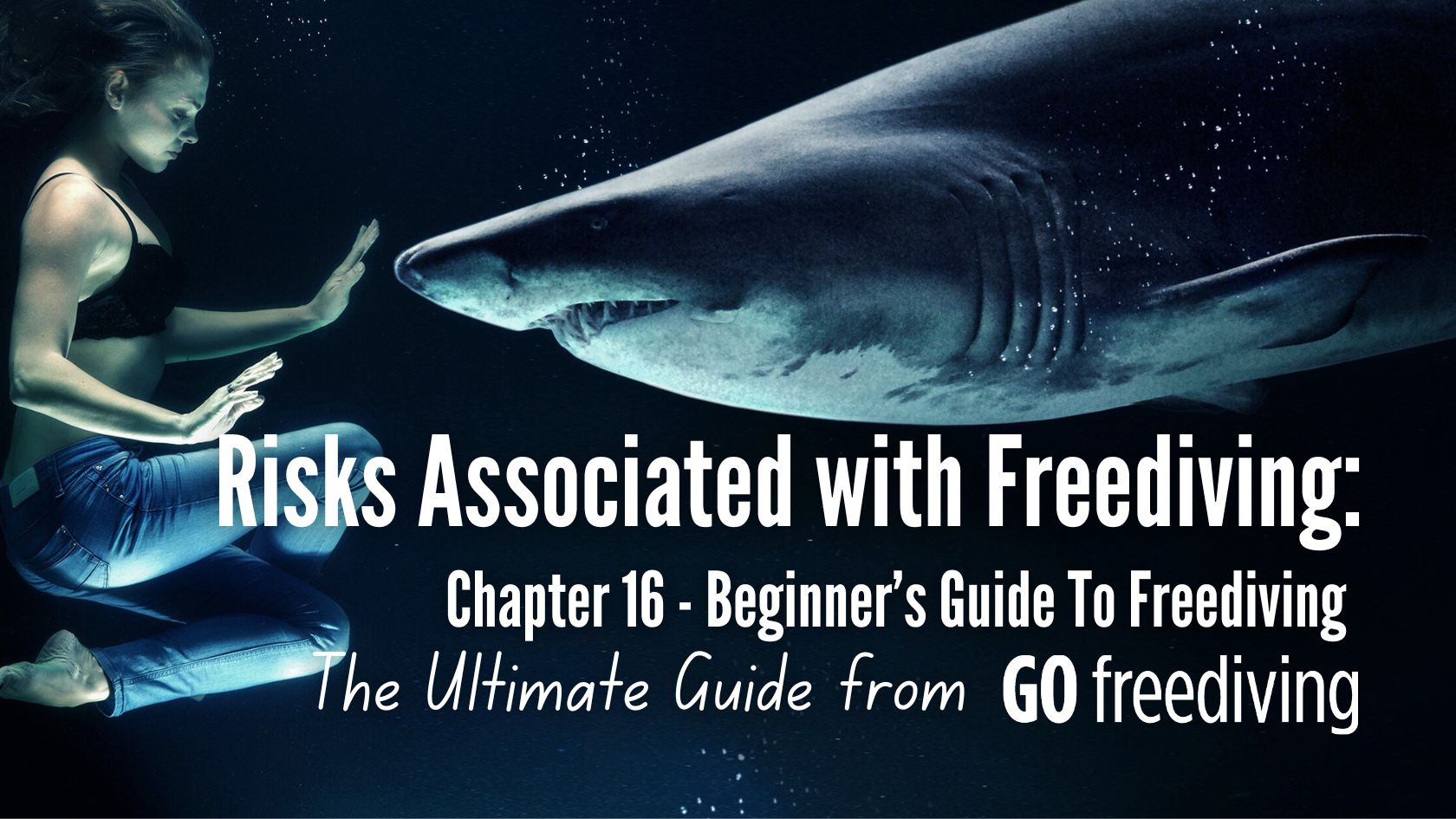
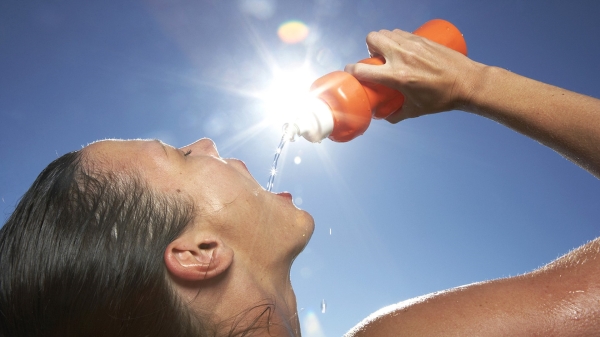

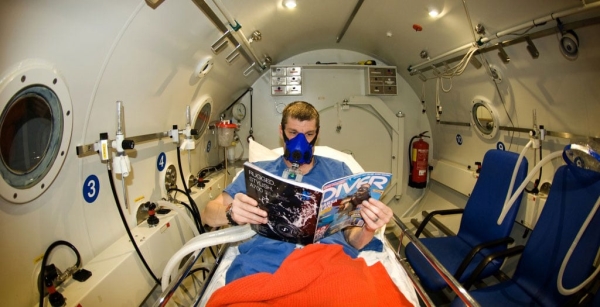
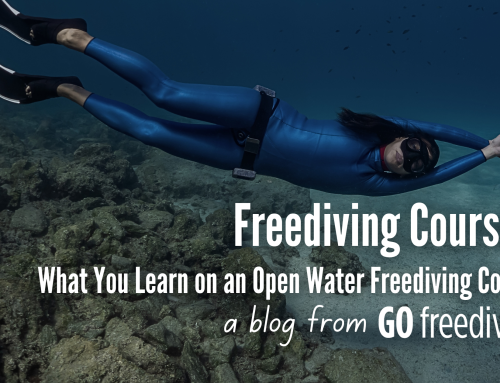

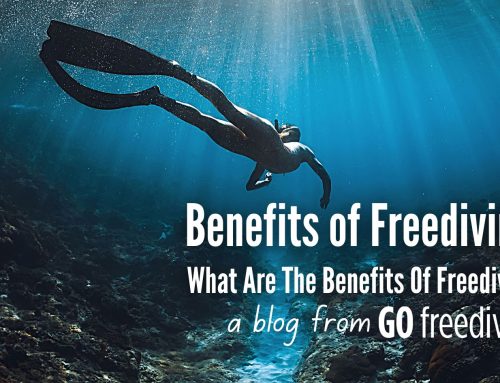
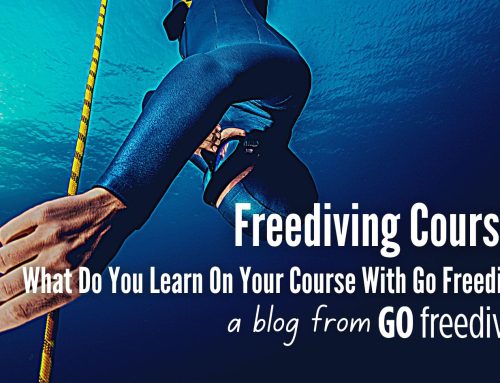
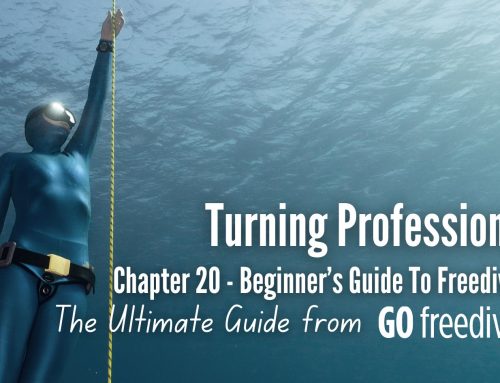
Leave A Comment